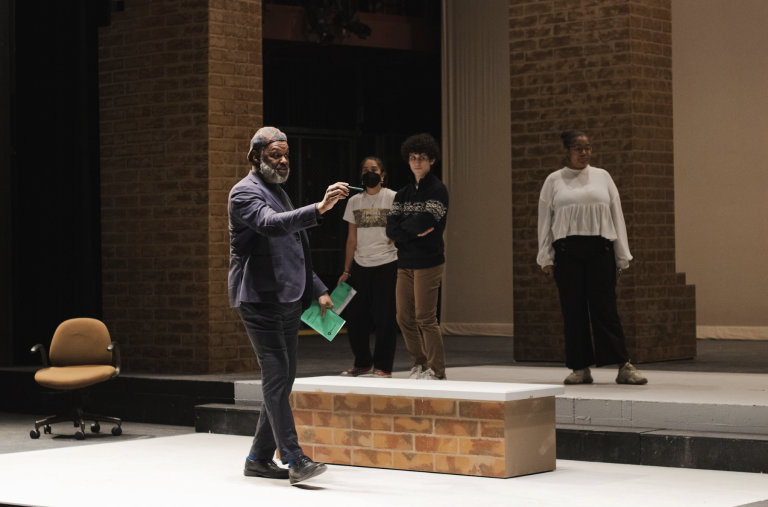John Hunt ’26
Contributing Writer
All Quiet on the Western Front is one of the most gripping, raw, and visually stunning movies you’ll see this year. Based on the 1929 novel of the same name by Erich Maria Remarque, this film is the second adaptation of the novel, coming 92 years after the hugely successful and legendary 1930 film of the same name. But 2022’s All Quiet on the Western Front is not an updated version of the American classic; instead, it offers a version much more authentic to the novel, being directed and acted by an entirely German cast. This provides the audience with a distinctly anti-war perspective from a country familiar with modern warfare’s devastating consequences.
The film is set on the front lines of the western front of World War I in the German-occupied borderlands of France. It follows Paul Bauman (played by Felix Kammerer, making his big screen debut), a 17-year-old German boy who reluctantly enlists in the army by forging his parent’s signature and age after being goaded by his school friends. It is a familiar story of an eagerness for adventure without considering what it means to go to war. The adventurous tone soon ends once Paul reaches the frontline, as the landscape turns into a bleak and dark wasteland of mud, craters, and bodies strewn over mangled battlefields; this is where the mastery of All Quiet on the Western Front reveals itself. The movie is so visually evocative that one could watch without sound and still be captivated. The battle scenes are extraordinary as they depict the frenzied nature of war. They juxtapose courageous men running headfirst into battle, bombs exploding all around, with their overwhelming, isolating fear. The battles are wonderfully choreographed and shot, immersing the viewer so much that it sometimes feels like you are in the trench.
One unique part about this movie is that it shows multiple close-up headshots of its various characters, often speechless, in which their expression tells the story. An unforgettable moment occurs when, after murdering a French soldier in a crater with a knife in hand-to-hand combat, Paul pants wildly, his face covered with mud and blood, shocked at what he has done. He says nothing for multiple seconds until, after hearing the French soldier gasp for air, he begins to scream, “be quiet!” at the soldier. It is a horrifying scene but also one of the movie’s best, for it does a masterful job of depicting the horror of war and its psychological impact on soldiers.
“A man is born alone, he lives alone, and he dies alone.” These are the words of General Friedrichs, the semi-antagonistic general who orders futile advance after futile advance. It alludes to one of the prevailing themes within the war epic: the loneliness felt by soldiers during the war. Even in the most frantic moments of fighting, while the soldiers charge together, the movie makes a point to show that the men primarily focus on individual survival and often die ignominious deaths alone.
Another aspect of the film that should be noted is the great contrast between the battlefield and the homefront. There is a stark difference between the enthusiasm and nationalism within Paul’s hometown for sending men off to war, only to have it shattered once they arrive. The film builds on this throughout, as it routinely cuts back-and-forth between peaceful towns and the shambolic trench, or from Paul’s unit discovering a mass grave of soldiers who died in a gas attack to the ornate general’s headquarters far from the frontline.
All Quiet on the Western Front is, in my opinion, one of the best war movies released in some time. While it is a foreign film (there is dubbing in English, but I would recommend watching with subtitles), it should still captivate American audiences. It effectively combines the psychological trauma and effects that war has on individual soldiers with unforgettable depictions of life and battle within the trenches of the Great War. It’s on Netflix, and the only thing I have left to say is: if you haven’t seen it, do so now, and if you have, you should probably watch it again. It’s that good.






+ There are no comments
Add yours